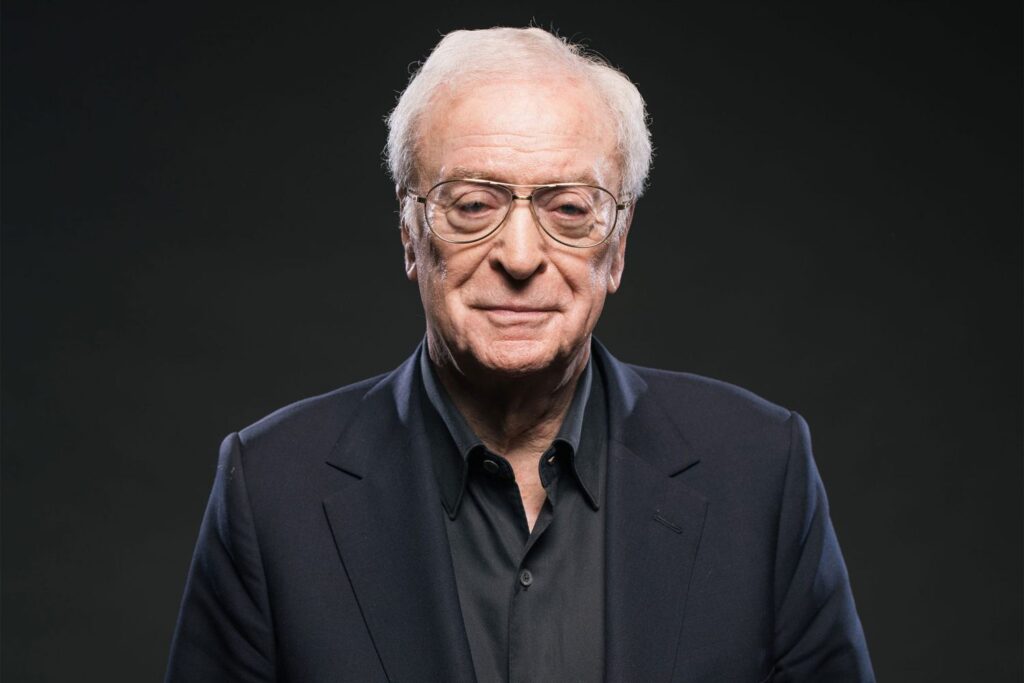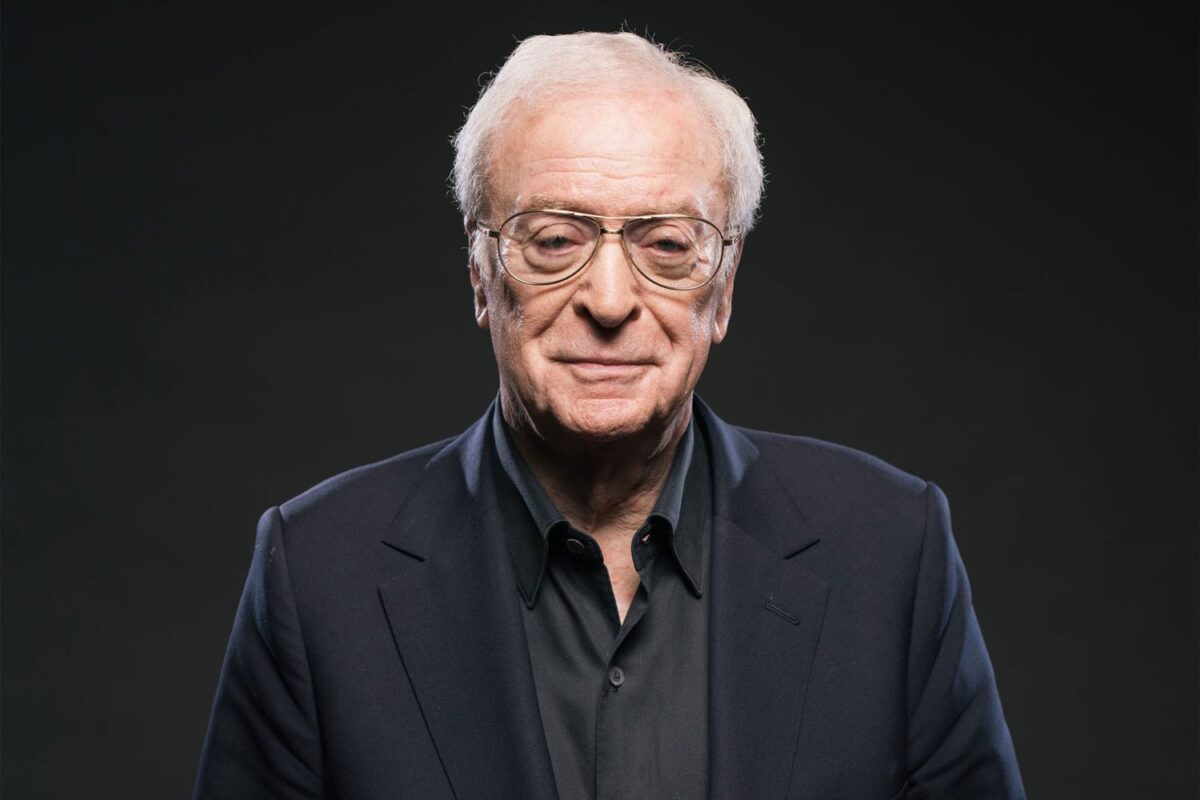For more than forty years, Caine’s mother, Ellen Maria Burchell, paid periodic visits to a “cousin” in a mental hospital. When she died in 1989, Caine learned that the cousin was really his elder brother, David.
He owns seven restaurants: six in London, one in Miami.
Once said that he knew he had made it as an actor when he started getting scripts to read that no longer had coffee stains already on them (meaning that he was the first choice for that role).
He legally changed his name to Michael Caine in 2016. He said in an interview that he’d had too many problems travelling with a passport that didn’t match his stage name.
Educating Rita (1983) is his favourite film of his own, and the performance he’s the most proud of.
His all-time favorite actor, his inspiration to become an actor and his hero is Humphrey Bogart.
Has been nominated for an Oscar at least once in five consecutive decades (1960s-2000s).
Throughout the 1960s, he was by his own estimation drinking two bottles of vodka and smoking at least eighty cigarettes a day. He quit smoking cigarettes following a stern lecture from Tony Curtis at a party in 1971, and finally quit smoking cigars shortly before his 70th birthday in 2003.
When he was still a struggling actor, Caine shared a London flat with future hairstylist-guru Vidal Sassoon.
Took his name from the film The Caine Mutiny (1954)
Visited John Wayne several times when the veteran star was dying of cancer in hospital.
Close friends with Sir Sean Connery, Sir Roger Moore, Sir Elton John and Sir Andrew Lloyd Webber.
Near the end of The Muppet Christmas Carol (1992), he passes by a store called “Micklewhite’s”. His real name is Maurice Micklewhite.
1987: Was not present at the Academy Awards ceremony when he won best supporting actor for Hannah and Her Sisters (1986) because he was filming Jaws: The Revenge (1987), for which he was nominated for worst supporting actor at the Razzie awards the following year.
Stated that for years he hated the smell of garlic as he associated it with his service in the Korean War where North Korean and Chinese troops would munch it as a snack. He eventually overcame his dislike upon becoming a restaurateur.
Mike Myers said that he based the character Austin Powers partially on Caine’s character in Alfie (1966). Caine would play Austin Powers father in Austin Powers in Goldmember (2002).
He first saw Shakira Caine (then Shakira Baksh) in a 1971 Maxwell House coffee commercial, directed by a then-unknown Ridley Scott. Caine became obsessed with her, calling her “the most beautiful woman he had ever seen”. He desperately tried to meet her, even planning a trip to Brazil. A friend of his said that she was living in London, and gave him her phone number. Caine and Baksh married at the Algiers Hotel in Las Vegas in 1973.
In 2016, at age 83, he finally changed his legal name from Maurice Micklewhite to Michael Caine. He said this was because he was fed up being delayed in airport security by staff who did not understand why the name on his passport did not match the person they recognised.
Claims that his trick to being able to cry on cue is thinking about a painful childhood memory.
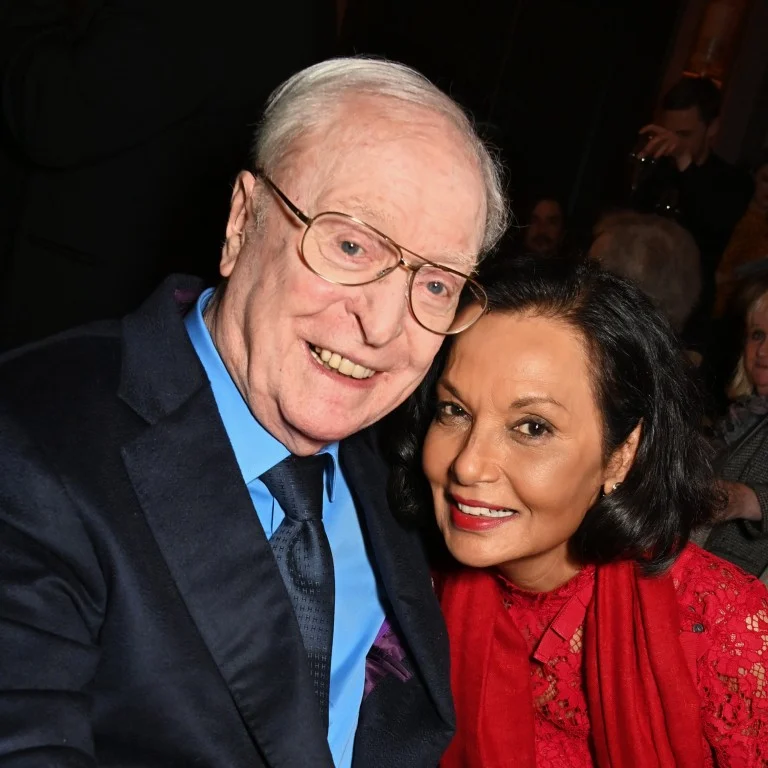
He turned down both of the male leads in Women in Love (1969) because he refused to do any nudity. The roles went to Sir Alan Bates and Oliver Reed.
Ranked 10th highest grossing actor of all time with his previous films grossing $3.2 billion [2016].
His first American accent was in the film Hurry Sundown (1967). He was taught the Southern drawl by Vivien Leigh, who told him to say “four door Ford” all day long for weeks. (source – “What’s it all about?” Michael Caine’s autobiography – 1992).
Lodged with composer John Barry in the early 1960s for several months, after being forced to leave his own flat, penniless. He returned the favor in 1998 when agreeing to introduce the composer’s Royal Albert Hall concert – his first in the United Kingdom for 25 years.
In 1957, at Brighton University, Caine appeared in a one-act play written by a fellow actor who went by the name of David Baron. It was Baron’s very first play. He later changed his name back to Harold Pinter, the name under which he won the Nobel Prize for Literature in 2005.
His favorite film is the film noir The Third Man (1949).
In 2009, he praised Christoph Waltz’s performance as Colonel Hans Landa in Inglourious Basterds (2009), saying that it was the “best performance of a villain” he has seen in years.
He is famous for the catch-phrase “Not a lot of people know that”, though he never actually said it. The phrase was probably first said by Peter Sellers when he appeared Parkinson (1971) on 28 October 1972 and said: “Not many people know that. This is my Michael Caine impression. You see, Mike’s always quoting from the Guinness Book of Records. At the drop of a hat he’ll trot one out. ‘Did you know that it takes a man in a tweed suit five and a half seconds to fall from the top of Big Ben to the ground?’ Now there’s not many people who know that!”.
Four of his memorable films (Alfie (1966), The Italian Job (1969), Get Carter (1971) and Sleuth (1972)) have all been remade.
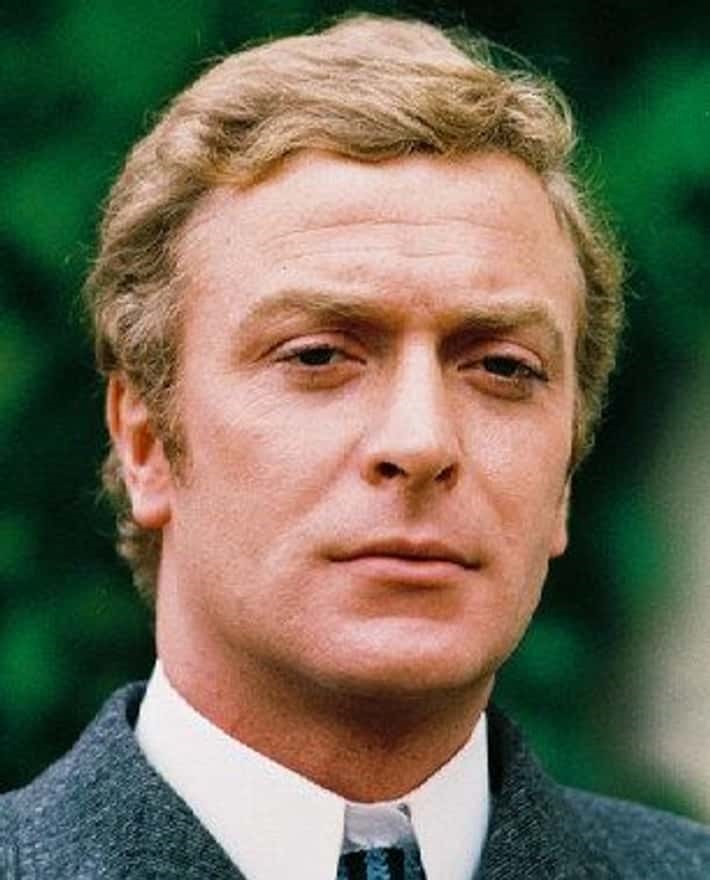
Though he had been considered for, but never appeared in a Bond movie, Caine was the very first person to hear the completed film score for Goldfinger (1964). After he and roommate Terence Stamp were both ejected from their apartment, Caine asked composer friend John Barry if he could use the spare bedroom at Barry’s London residence. As they were good friends, Barry agreed and so for several months Caine crashed with Barry and was there the sleepless night he completed his iconic score. At breakfast the following morning, Barry played his composition for Caine, the first time he had performed it for anybody.
He was considered for the lead role in Tootsie (1982), which went to Dustin Hoffman.
Co-owned top London restaurant Langan’s Brasserie.
The soundstage at Shepperton Studios, in which he filmed Batman Begins (2005), is also the one where he filmed his very first film, Hell in Korea (1956).
He didn’t know about his older half-brother, David, until their mother died. David suffered from epilepsy and spent his life in a hospital. His younger brother, Stanley Caine, appeared in Billion Dollar Brain (1967), Play Dirty (1969), and The Italian Job (1969).
He turned down the role of Captain Edward J. Smith in Titanic (1997), which went to Bernard Hill.
Shared a London flat with actor Terence Stamp early in his career.
Of the six performers who have won Oscars for performances in films directed by Woody Allen, he is the only man. The others are Diane Keaton, Dianne Wiest (twice), Mira Sorvino, Penélope Cruz and Cate Blanchett.
Has a photographic memory.
Chosen by GQ magazine as one of the 50 Most Stylish Men in the Past 50 Years.
He was considered to play C.S. Lewis in Shadowlands (1993), which went to Sir Anthony Hopkins.
The title role in Alfie (1966) was turned down by Anthony Newley and Terence Stamp before this was offered to him.
In every film where Caine and Christopher Nolan make a collaboration, Caine’s character either assists, guides, trains or educates the protagonist of each film. In The Prestige (2006), Caine portrays a magician who teaches the main character the art of illusion. For ‘The Dark Knight trilogy’, Caine plays a butler to the Wayne family, where he supports, nurtures and loves the main character Bruce Wayne (Batman). During Inception (2010), Caine depicts the father-in-law of the main protagonist, Cobb, and aids him in recruiting one of his students. In Interstellar (2014), Caine portrays a professor/engineer, who invites and encourages the central character, Cooper, to lead an important space mission that will determine the future of planet earth.
It was rumoured that he did not get along with Steven Seagal while filming On Deadly Ground (1994). He has stated that while they got on fine, but he hated filming in Alaska, even joking that “On Deadly Ground” was an apt title.
Owns his own film production company.
His father worked as a porter at London’s Billingsgate Fish Market.
He has appeared in one film that has been selected for the National Film Registry by the Library of Congress as being “culturally, historically or aesthetically” significant: The Dark Knight (2008).
As of 2018, has appeared in five films that were nominated for the Best Picture Oscar: Alfie (1966), Hannah and Her Sisters (1986), The Cider House Rules (1999), Inception (2010) and Dunkirk (2017). He was nominated for his performances in the first three of these and won Best Supporting Actor for Hannah and Her Sisters and The Cider House Rules. In Dunkirk, he voices the unseen RAF Squad Leader.
The production offices of Mona Lisa (1986) were located in the disused St. Olave’s hospital, the very hospital in which Caine was born.
Before he became famous as a film star, he turned down the role of PC Bob Steele in the BBC’s police drama series Z Cars (1962) because he did not want to be typecast in a popular television program. The role was taken by Jeremy Kemp.
Turned down the role of Robert Rusk in Alfred Hitchcock’s crime thriller Frenzy (1972). He thought the character was disgusting and said “I don’t want to be associated with the part.” After Caine declined the role he later mentioned in his memoirs how Hitchcock completely ignored him when they met in a hotel a few years later.
Has appeared in the remakes of two of his films: Get Carter (2000) and Sleuth (2007).
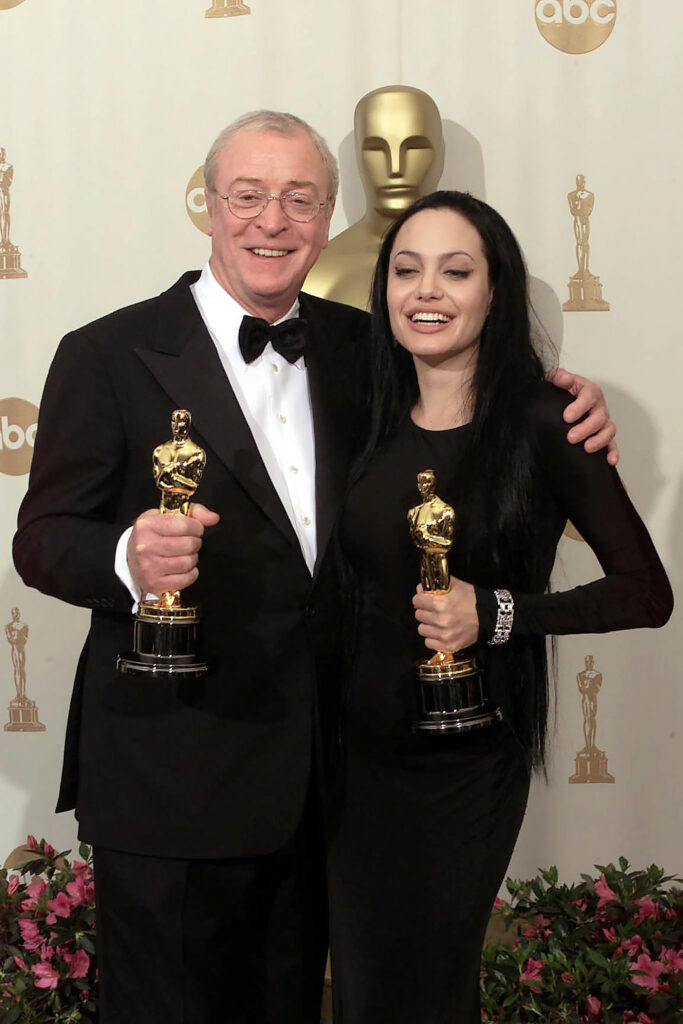
Has appeared in the remakes of two of his films: Get Carter (2000) and Sleuth (2007).
He turned down the role of Colonel John Stewart in Khartoum (1966), which went to Richard Johnson.
He was considered for Sir Sean Connery’s roles in Highlander (1986), The Name of the Rose (1986) and The Avengers (1998).
He was considered for the role of Grandpa Joe in Charlie and the Chocolate Factory (2005), which went to David Kelly.
When he tested for Zulu (1964), Cy Endfield told him that it was the worst test he had ever seen. But as they were stuck for a suitable actor, he still got the role.
Resides in Leatherhead, Surrey, and is a patron to the Leatherhead Drama Festival.
Michael spent two hours trying to talk Terence Stamp, his flat mate into taking the title role in Alfie (1966).
On November 16, 2000, he was formally knighted at Buckingham Palace under his birth name Maurice Mickelwhite. Professionally, he became Sir Michael Caine.
He revealed in his autobiography that he that he also read for Doctor Yuri Zhivago in Doctor Zhivago (1965) and participated in the screen shots with Julie Christie, but (after watching the results with David Lean) was the one who suggested Omar Sharif.
Was the first person to be nominated for an acting Razzie Award for more than one title. He was nominated for Worst Actor of 1980 at the very first Razzie Awards for his roles in the films Dressed to Kill (1980) and The Island (1980).
He turned down the role of Jolly in Kiss Me Goodbye (1982) in order to star in Educating Rita (1983). The role went to James Caan.
He turned down the role of Patrick Dalton in Six Weeks (1982), which went to Dudley Moore.
He was the first choice for the role of Marvin in City of Ghosts (2002), which went to James Caan.
Father of Dominique ‘Nikki’ Caine (b. 14 August 1957) with the late Patricia Haines, and Natasha Hall (b. 15 July 1973) with Shakira Caine. Through Natasha, he has three grandchildren.
Caine has been very open about his political views. He left the United Kingdom in 1979 for tax reasons and did not return until 1987 when Margaret Thatcher had cut the top rate of income tax. An ardent Thatcherite during the 1980s, Caine said in an interview early in 1997 it “would not be a bad thing” if Tony Blair’s New Labour Party won the 1997 General Election. In an interview with “The Sunday Telegraph” on 26 April 2009, Caine admitted that he was considering becoming a tax exile again if Labour Prime Minister Gordon Brown increased taxes on high earners. He confirmed in an interview with “The Mail on Sunday” newspaper on 1 November 2009 that he had dropped his support for Labour and would vote Conservative at the next General Election. He publicly supported Conservative Party leader David Cameron for Prime Minister in the 2010 General Election. In January 2016, he also publicly called for the United Kingdom to leave the European Union.
Alfie (1966) and Sleuth (1972) were both remade with Jude Law taking over his role.
He claimed that the worst films he ever made were The Magus (1968), The Swarm (1978) and Ashanti (1979).
He was considered for the role of Mark Wallace in Two for the Road (1967), which went to Albert Finney.
He tried out for the role of Lieutenant Scott-Padget in Damn the Defiant! (1962), which went to Sir Dirk Bogarde.
He turned down the role of Maurice Castle in The Human Factor (1979), which went to Nicol Williamson.
2001: Was voted fifth in the Orange Film Survey of greatest British actors.
He is a huge fan of chill-out music and released a compilation CD called “Cained” (2007) on the UMTV record label. He met Sir Elton John and was discussing musical tastes, when Caine said that he had been creating chill-out mix tapes as an amateur for years.
Although often listed as 6′ 2″, Caine himself gave his height as 6′ 1″ in his autobiography “What’s It All About?” (1992).
He was made a Fellow of the British Film Institute in recognition of his outstanding contribution to film culture.
Caine and fellow Brit Michael Gough, who both played Alfred Pennyworth in “Batman” movies, have also both had roles in different productions of “A Christmas Carol” (Caine as Scrooge in The Muppet Christmas Carol (1992) and Gough as Mr. Poole in A Christmas Carol (1984) with George C. Scott).
Speaks French fluently.
Ranked #55 in Empire (UK) magazine’s “The Top 100 Movie Stars of All Time” list. (October 1987)
“Michael Caine”, a top 10 song in Britain in the mid-1980s by the new wave group Madness, had his “My Name is Michael Caine” quote sampled into the song.
Born on the same date as Motown CEO and recording magnate Quincy Jones.
December 18, 2005: Attended the party at his close friend Sir Elton John’s Old Windsor mansion after the singer married David Furnish in a civil partnership ceremony.
He was originally cast as Private Wilkes in Guns at Batasi (1964). John Leyton replaced him.
Was a wartime refugee spending six years in North Runcorn, Cheshire where he attended the village school.
Lobbied for the lead role in The Day of the Jackal (1973) but was rejected by director Fred Zinnemann, who felt that the character of The Jackal, who essentially is a cipher, should not be played by a movie star.
He is a fan cricket. This was alluded to by Gary Oldman, who acted with Caine in The Dark Knight Rises (2012), when he talks about Caine’s acting methods: “It’s, ‘Take one’. He got it. ‘Take two’, got it. ‘Take three’, got it. He’s just on the money… He doesn’t fuck around because he wants to get back to cricket.”.
1987: Awarded British Variety Club Award for Best Film Actor.
He was considered to star opposite Sean Connery in Saturn 3 (1980). The roles went to Kirk Douglas and Harvey Keitel.
Is a supporter of Chelsea FC (English soccer team).
He turned down Richard Burton’s role in Where Eagles Dare (1968).
Made his first screen appearance in a Watneys beer commercial in 1959.
He was offered the main guest role in Homer and Apu (1994), the joke being that his propensity for appearing in anything also included working in the Kwik-E-Mart. He turned it down and the role went to James Woods.
He was awarded the CBE (Commander of the Order of the British Empire) in the 1992 Queen’s Birthday Honours List and Knight Bachelor in the 2000 Queen’s Birthday Honours List for his services to drama.
He was considered for the title role in Casanova (1976), which went to Donald Sutherland.
Has two roles in common with Jude Law: (1) Caine played Alfie Elkins in Alfie (1966) while Law played him in Alfie (2004) and (2) Caine played Milo Tindle in Sleuth (1972) while Law played him in Sleuth (2007), in which Caine played Andrew Wyke.
He turned down the role of Staff Sergeant Williams in The Hill (1965) in order to star in Alfie (1966). The role went to Ian Hendry.
His stated belief that actors shouldn’t blink on screen was dismissed as “old-fashioned bullshit” by the director Mike Leigh during an interview on Breakfast (2000) in 2018.
Spent a year of his National Service in Germany and a year in Korea (1951 -53) as a rifleman private in the Royal Fusiliers.
He was considered for the role of Ben du Toit in A Dry White Season (1989), which went to Donald Sutherland.
Following the launch of Harry Brown (2009), Caine called for the reintroduction of national service in the UK to give young people “a sense of belonging rather than a sense of violence”.
He did not learn to drive a car until he was over 50. Caine said that when he was unknown he could not afford driving lessons, and afterwards the film studio always provided a chauffeur-driven car for him. Whenever he was shown driving in films he was always on a trailer.
Has stated that the character of Vichy war criminal Pierre Brossard in The Statement (2003) was his least favorite. He said that all the other characters he played in his career, whether good or evil, had a sense of humor on.some level that he would try to convey in his performance. He felt that Brossard had no sense of humor whatsoever, in part because the character was such an intense man.
Says that of the films he has made he thinks he was good in Zulu (1964), Alfie (1966), The Last Valley (1971), Sleuth (1972), The Man Who Would Be King (1975), Beyond the Limit (1983) and Educating Rita (1983).
